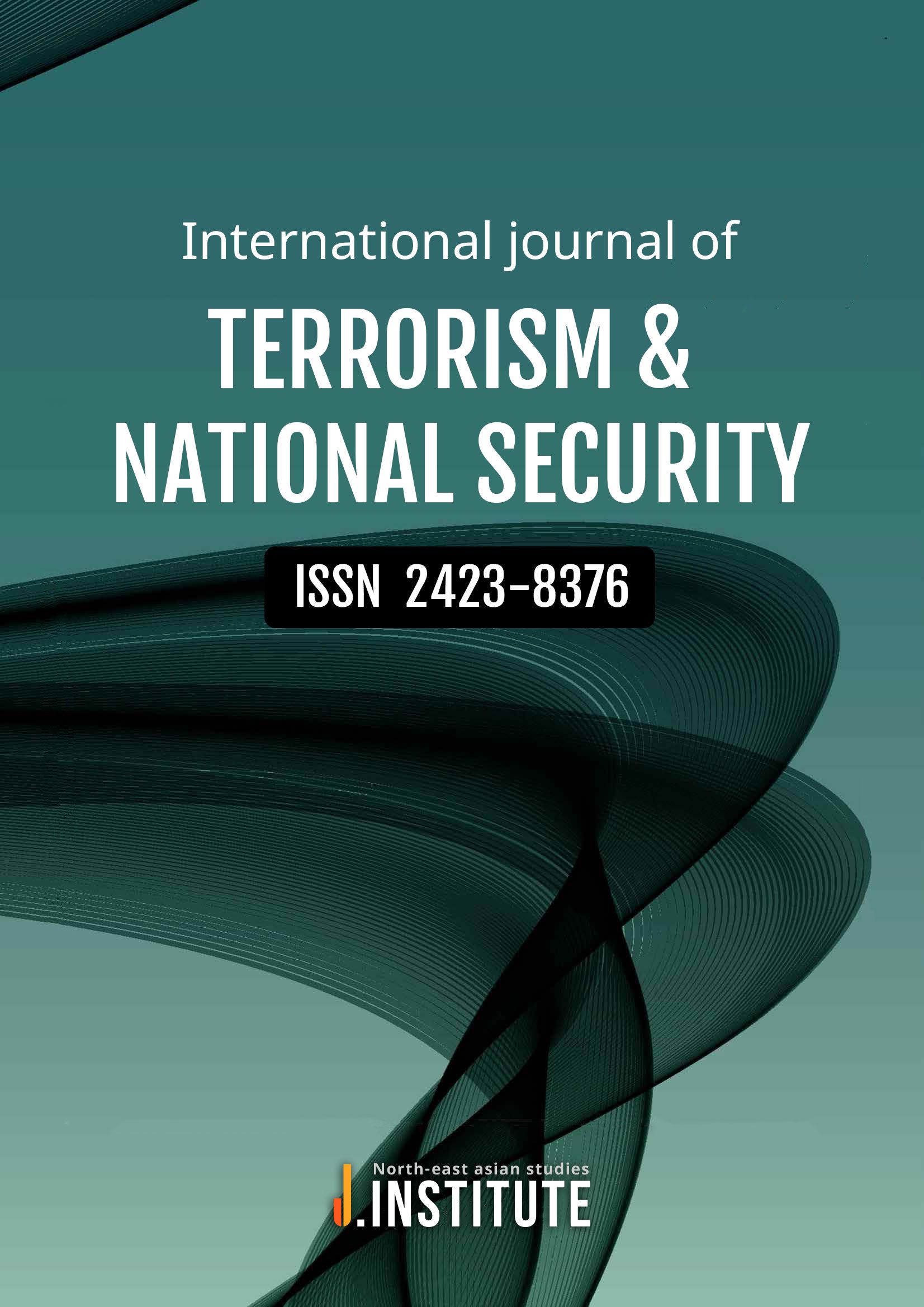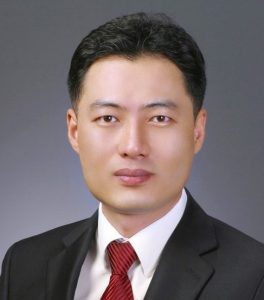Historically, the concept of national security has changed. While the first-generation war was a troop war, the development of science and technology and mass production from the Industrial Revolution changed the aspect of war into a second-generation war, which is a destructive power war. Throughout World War II, the expansion of weapons of mass destruction changed into a network war (information war) rather than a direct war through the ‘balance of fear’, rapidly expanding the number of intelligence agencies around the world.
With the end of the Cold War between the United States and the Soviet Union, the of irregular characteristics cyber warfare has transformed into the core of national security.
Also, economic security has become more important in the international community based on the market economy and free trade, and not only soft power based on this, that is, cultural security, but also non-conventional factors such as Covid-19 have recently emerged.
Meaning that the security paradigm had shifted from physical security in the past to cyber security to the era of comprehensive security.
In this uncertain situation this strategic analysis of crime, terrorism, and national security in diagnoses the era and presents the future so that insightful interpretation can be approached practically. Policies built on strategic analysis predict tomorrow’s success or failure, but go further and change our lives for the better in the distant future.
This journal is present the results of multilateral research and in-depth analysis in the fields of crime, terrorism, and national security in Asia, an internationally renowned buffer state. It also sheds light on the perspectives of Asian researchers on international issues.
Detail with a we recommend that potential authors review recent issues to determine whether their paper is appropriate to the journal.
Aims & Scope
Area 1 Comprehensive Threat
Area 2 Intelligence Service
Area 3 Strategy and Forecast
Latest Articles
+ View all articles
-
Purpose: The local police system is vital for meeting community needs and maintaining order. Despite its introduction under Moon's administration, it faces criticism and conflict, especially in Jeju. This study aims to assess perceptions among Jeju residents, police, and experts, focusing on the system's effectiveness and areas for improvement, emphasizing the need for thorough evaluation and stakeholder input before full implementation. Method: This study analyzes differences in linkage tasks, collective efficiency, and security satisfaction based on age in the Jeju local police system. Using a survey of 500 Jeju residents conducted via Macroembrain, the study employs SPSS and Amos for factor analysis, reliability testing, and regression analysis. The research aims to evaluate residents' perceptions and the impact of the local police system, examining factors such as demographic variables and system awareness. Results: Hierarchical regression analysis of the Jeju local police system reveals that demographic variables (gender, age, residence, education) have minimal impact on governance linkage, collective efficiency, and security satisfaction. In contrast, awareness of the local police system significantly influences governance linkage (β=.189), collective efficiency (β=.375), and security satisfaction (β=.220), highlighting its greater importance over demo-graphic factors. Conclusion: Research on the implementation of local police systems has been mainly theoretical. This study, using factor and regression analyses, finds that awareness of the local police system positively impacts governance, efficiency, and security satisfaction. Effective practices and improvements, including increased public awareness and training, are suggested to enhance the system’s impact.Keyword:Local Police System, Governance Linkage, Collective Efficiency, Security Satisfaction, System Awareness
-
Purpose: In modern criminal proceedings, human rights guarantees have been discussed mainly for perpetrators who are expected to be punished in the future, but interest in the criminal law status of victims, which has been marginalized since 1980, has increased. Terrorist crimes will also not be free from this trend. No, terrorist crimes are crimes that require more importance in consideration of victims under the Criminal Policy and Criminal Procedure Act. Thus, The purpose of this article is to identify the current status and problems of the support system for victims of terrorist crimes in Korea and find ways to improve them. Method: Terrorism will also not be free from this trend. No, terrorism is a crime in which consideration should be given to victims under the Criminal Policy and Criminal Procedure Act. This is be-cause terrorist crimes, unlike ordinary crimes, have a very high need to repair property, physical and psychological damage to victims directly from criminal acts in that they are used as tools for human life and body, as well as take structures that mass-produce such victims. This research begins with the question "Where is the current state of consideration for victims of terrorist crimes under our actual law?" To this end, we will first review the concept and scope of victims of terrorist crimes. This is because the concept of terrorist crimes is value-charged and the victims of terrorism are the same. In addition, the ministry conducted a review of the characteristics of the victims of terrorism. Based on these discussions, we look at the structure of the nation's sup-port system for victims of terrorist crimes and discuss the support of victims of terrorist crimes abroad. In particular, the government took the issue as a reference to the Korean government's plan to improve the support system for victims of terrorist crimes by examining the international community's response philosophy and support system, including the United Nations, in terms of guaranteeing the human rights. Finally, the Act on the Prevention of Terrorism and the Act on the Protection of Victims of Crimes reviewed measures to improve the support system for victims of terrorist crimes. Results: The main improvement measures for the support system for victims of terrorist crimes according to this paper are as follows. First of all, it was argued that the damage of terrorist crimes should be considered not only traditional physical damage but also metaphysical legal interests such as the right to self-determination of personal information. In particular, it was argued that the people's right to self-determination of personal information by performing investigation activities under the Anti-Terrorism Act and collecting information should also fall under the damage of terrorist crimes. Next, since most of the current support for victims of terrorist crimes focuses on the financial sup-port system, it was proposed to strengthen access to support victims of terrorist crimes as well as the input of human and material assets to overcome the trauma of victims (although there are also payments for mental dam-age recovery). In addition, the Korean Crime Victim Support Center was ordered to play an active role in introducing an active victim support system such as CVAP in New York State. Conclusion: This research begins with the question "Where is the current state of consideration for victims of terrorist crimes under our actual law?" To this end, we will first review the concept and scope of victims of terrorist crimes. This is because the concept of terrorist crimes is value-charged and the victims of terrorism are the same. In addition, the ministry conducted a review of the characteristics of the victims of terrorism. Based on these discussions, we look at the structure of the nation's support system for victims of terrorist crimes and discuss the support of victims of terrorist crimes abroad. In particular, the government took the issue as a reference to the Korean government's plan to improve the support system for victims of terrorist crimes by examining the international community's response philosophy and support system, including the United Nations, in terms of guaranteeing the human rights. Finally, the Act on the Prevention of Terrorism and the Act on the Protection of Victims of Crimes reviewed measures to improve the support system for victims of terrorist crimes.Keyword:Terror Crime, Victim of Terror Crime, Support of Victims, Crime Victim Protection Act, Act on Counter-Terrorism for the Protection of Citizens and Public Security
-
Purpose: As of 2024, approximately 34,000 people who escaped North Korea are risking their lives to escape the oppression and human rights violations of the North Korean Kim Jong-un regime and settle in South Korea. They learn the truth about the outside world only after secretly watching South Korean dramas in North Korea, and they decide that there is no future for them as long as Kim Jong-un holds power in North Korea, so they take their children and escape North Korea. After overcoming the crisis of death and settling in South Korea, they receive comprehensive help from the South Korean police to settle into South Korean society. Therefore, South Korean police officers have a high level of understanding in research on North Korean defectors, and since South Korean police officers are public officials, sufficient objectivity can be expected. This study is valuable academic basic data that can provide many researchers internationally with South Korean society's perception of North Korean defectors. Method: The data processing of this study was conducted using the statistical package program SPSS 23.0 Program, and the following statistical verifications were performed according to the purpose of data analysis. First, frequency analysis was conducted using the SPSS/PC+23.0 program to identify general characteristics. Second, Cronbach's α coefficient was calculated to verify the reliability of the questionnaire. Third, One Way ANOVA was conducted to find out the difference in police officers' perception of North Korean defectors according to their period of working. Fourth, exploratory factor analysis was conducted to find out police officers' perception of North Korean defectors. Results: Korean police officers who had worked for a long time recognized that North Korean defectors visit police stations after settling in South Korea to receive legal support. Among Korean police officers who had experience working in security departments directly managing North Korean defectors, those who had worked for a longer time recognized that what was necessary for adapting to South Korean society was an understanding of South Korean society, such as liberal democracy and the market economy system, and that what was difficult about settling in South Korean society was feeling insecure about their personal safety. In addition, they recognized that the average monthly income per household of North Korean defectors in South Korean society was moderate. Conclusion: Since North Korean defectors acquire South Korean citizenship normally, once they settle down in South Korean society, there is no discrimination based on constitutional values, and there are cases of them being elected to the National Assembly, showing their acceptance. In addition, the minimum wage is set at $7.45 per hour, which is higher than the monthly salary of North Korean diplomats (0.3 dollars), and North Korean defectors also receive compensation for their work and enjoy a stable life. In addition, all North Korean defectors live while enjoying South Korea's social security system, including unemployment benefits, health insurance, industrial accident compensation insurance, national pension, and old-age pension.Keyword:Kim Jong-un’s Politics of Fear, North Korea’s State Security Department’s Violence, The Influx of K-Content into North Korea, North Korean Defectors, Settlement in South Korean Society
-
Purpose: North Korea is training elite cyber hacking personnel and using them for cyber financial crimes, cyber terrorism, and cyber psychological warfare. The purpose of this study is to analyze the current state of cybercrime in North Korea and provide basic data to effectively respond to cybercrime in North Korea. Method: To train cyber specialists, North Korea selects elite personnel after intensive training through elementary, middle, and university education, and then forms a cyber hacking organization through them to analyze cybercrime conditions such as cyber financial crimes and cyber terrorism. Results: North Korean cyber agents are trained as cyber specialists at Kim Il Sung University, Kim Chaek University of Technology, and Mirim Military University. Since then, it has been confirmed that it is a member of the Technical Reconnaissance Bureau under the Reconnaissance General Bureau, engaged in cyber financial crimes, cyber terrorism, and cyber psychological warfare, and that APT37, North Korea's hacking organizations, and Kimsuky are working to steal military secrets from major countries such as South Korea, the United States, and Japan. Conclusion: North Korea's network environment and Internet utilization are among the lowest in the world, but its cyber hacking capabilities are estimated to be among the best in the world. In order to respond to such cyberattacks from North Korea, it is urgent to improve legislation, such as strengthening cyber investigation capabilities and enacting the National Cyber Security Framework Act.Keyword:North Korea’s Reconnaissance General Bureau, Cyber Financial Crimes, Cryptocurrency Extortion, Cyber Terror, Cyber Psychological War
-
Purpose: The purpose of this study is to examine how the crime prevention activities of the autonomous police, centering on Suwon City, have an impact on police trust, and to suggest ways to secure the reliability of the autonomous police activities in the future. Method: In this study, 320 copies of the meaningful results obtained through the survey conducted on the citizens of Suwon were analyzed. For the analysis, the crime prevention activities of the autonomous police were set as an independent variable and trust in the police was set as a dependent variable. Results: As a result of analysis on the impact of crime prevention activities(patrol, crime prevention environment creation, order maintenance) of autonomous police on police trust, it was found that patrol and crime prevention environment creation had a significant effect, and order maintenance No significant effect was found. Conclusion: In order to actively prevent crime, it is necessary to support visible police activities, such as strengthening intensive patrols using foot patrols, motorcycles, and patrol cars, as well as supporting technical equipment for effective arrest. CCTV has a very useful value in that it can be used as an efficient means of arresting criminals by filling the public security vacuum caused by insufficient police manpower at the present time and converting data into a database. In addition, more practical equipment support should be provided by securing the police's own budget to expand the development and expansion of a customized work system tailored to the local situation and to strengthen cooperative public order such as autonomous security guards and child guards.Keyword:Autonomous Police, Crime Prevention Activities, Police Trust, Patrol, Crime Prevention Environment
Publishing Schedule
| JAN | FEB | MAR | APR | MAY | JUN | JUL | AUG | SEP | OCT | NOV | DEC | |
|---|---|---|---|---|---|---|---|---|---|---|---|---|
| Submission | 8/30 | |||||||||||
| Editorial Review | 9/10 | |||||||||||
| Double Blind Peer Review | 9/30 | |||||||||||
| Review-Form Reflection Review | 10/10 | |||||||||||
| Accepted | 10/20 | |||||||||||
| Manuscript Editing Review | 10/30 | |||||||||||
| Scientific Proofreading | 11/30 | |||||||||||
| Open & Hybrid Review | 12/10 | |||||||||||
| Published | 12/30 |
♦ Issues Per Year: Annual
Board Members
Head of Editorial Organization / President
Sangsoo Lee
Korea National Defense University, KOR
[Curriculum Vitae]
General Vice President
Ilsoo Bae
Korea Army University, KOR
[Curriculum Vitae]
Vice President
| Sunggu Jo Planning and Coordination | Kyungwoon University, KOR |
| Namseol Baek Public Relations | Sunmoon University, KOR |
Editor in Chief
Kwanghyun Park
KwangJu Women’s University, KOR
[Curriculum Vitae]
Executive Editor
Jina Choi
Hyupsung University, KOR
[Curriculum Vitae]
Editor in Administrations
| Chiyoung Lee | Yongin University, KOR |
| Chungsik Yu | Incheon Metropolitan City Social Economy Support Center, KOR |
| Eunjung Kim | Yongin University, KOR |
| Eunkee Kim | Paichai University, KOR |
| Gunwoong Yeom | U1 University, KOR |
| Jaesung Nam | Halla University, KOR |
| Jintea Han | Dongguk University, KOR |
| Jungha Kim | Daegu International Airport, KOR |
| Junghoon Ha | Jungwon University, KOR |
| LaPrade Jennifer | Missouri State University, USA |
| Laura Stoelers | University of Malaga, USA |
| Lin-Lin Wang | Shanghai University, China |
| Minseong Park | Keimyung University, KOR |
| Raymond D. Partin | University of Southern Indiana, USA |
| Sehwan Lee | Daejeon Institute of Science and Technology, KOR |
| Seungjoo Lee | Halla University, KOR |
| Sungtaek Cho | Sunmoon University, KOR |
| Taemin Kim | Kyungnam University, KOR |
| Taeyoung Yoon | Kyungnam University, KOR |
| Wendy Dressler | Florida International University, USA |
| Woongshin Park | Kyungnam College of Information & Technology, KOR |
| Woosuk Yun | Keimyung University, KOR |
| Youngjun Jo | Sangmyung University, KOR |
| Youseok Lim | Kunsan National University, KOR |
History
| 2015 | ||
| JUN. 23 | Establishment of the Publisher | |
| DEC. 05 | Inaugural General Meeting | |
| 2016 | FEB. 19 | International Journal of Terrorism & National Security (ISSN 2423-8376) |
| JUN. 30 | First Journal Publication | |
| OCT. 11 | Digital Object Identifier Enrollment (DOI) Google Scholar |
|
| 2019 | APR. 23 | EBSCO |
| MAY. 07 | ProQuest Exribris |
|
| 2020 | NOV. 02 | KCI (Korea Citation Index) |

Paper Submit
- inquiry@j-institute.org










